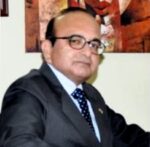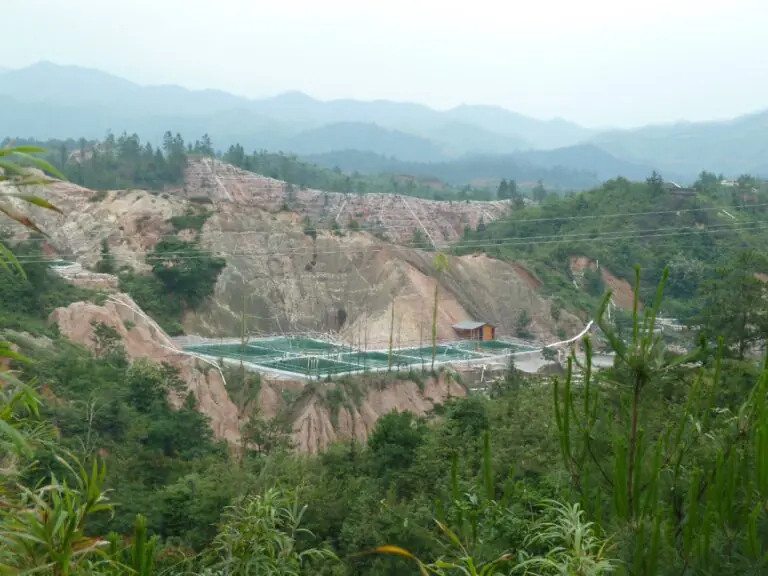SYRIA: NOW FOR MORE DIFFICULT PART
When Haiyat al-Tahrir al-Sham (HTS) led Sunni rebels launched their military campaign on November 27 last year from Idlib, they expected a series of hard battles against President Bashar al-Assad’s forces before eventual victory in one year. After all, 13 years of civil war were already over with government troops supported by Russian airpower, Hezbollah fighters and Iranian advisors having prevailed, bottling up the Sunni rebels in Exclusion Zones. Instead, the invaders were surprised by the collapse of the government forces in 11 days as Bashar al-Assad fled to Russia and the rebel forces stormed Damascus on December 7.
Ahmed al-Sharaa, the Interim President of Syria would now be hoping against hope for similar divine intervention as the new government faces daunting challenges with his options constricted by his past Karmas, Syria’s rundown state as well as dictates of the geopolitics.

To his credit, during four months since the takeover, he and his team have notched some successes. The transition was relatively smooth and without the mass sectarian retribution, many had feared after 13 years of no-holds-barred civil war. The motley group of militias were persuaded to merge into a unified structure and the old army – although it’s a bit early to predict its durability. The former Baath party political nomenklatura was pardoned and cashiered. A national dialogue of sorts was organised in late February to legitimise the new order. On March 7, President Ahmad al-Sharaa promulgated an interim constitution – or, more technically, a “constitutional declaration”—to govern Syria for a transitional period of five years. On March 10, he signed an agreement with the head of the Kurdish Self Defence Forces providing for integration of the SDF-controlled civilian and military institutions in northeast Syria with the state. In his announcements and interviews, he has been disarmingly cryptic but open and realistic about many of the policies adopted – from four years needed to frame the new constitution and elected legislature in five years, to Syria being too weak to confront Israeli aggression and admitting that some extremists have overreacted in killing innocent civilian Alawites during recent fighting.
The past four months of governance have largely been a period of grace after nearly fifty years of al-Assad rule setting the bar quite low. However, a formidable set of intertwined challenges lurk around the corner many of which would require sharp choices being made which would redefine the fledgling state.
First and foremost, among the challenges facing the new regime in Damascus would be the socio-economic resuscitation of Syria whose GDP was only $9 bn in2021 as compared to $67.5 bn in 2011 when the civil war began – a decline of 87%. During the same decade, the GDP per capita fell to $421 from $2791 – a decline of 86%. These figures are likely to have declined further since then with 2023 GDP being put at $6.2 billion. Of Syria’s current estimated population of 25 million, an estimated 7.6 million (30%) are internally displaced people (IDPs) and over 5 million (20%) refugees abroad, mainly in Turkey and Jordan. The war has also worsened economic conditions, with more than 90% of the population living below the poverty line and 80% facing food insecurity. By 2024, the Syrian civil war had resulted in more than 600,000 deaths and caused material damage estimated at $500 billion –nearly 50 times its current GDP. The annual inflation was 120.4% in April 2024. The unemployment rate was 13.5% in 2023, even as youth unemployment remained worryingly high at 33.5%. Much of the civil infrastructure has been destroyed. Against these heavy odds, the government is expected to provide a peace dividend and settle DPs and the refugees streaming back from abroad. Demobilised personnel need to be given employment.
With coffers empty and aid from Iran and Russia gone, Syria has lost its international economic support. With most Western economic sanctions are still in force, the national economy is in an unenviable position. A new beginning of sorts was made on March 17 with $6.3 billion in grants and loans being pledged to Syria’s transition at a donors’ conference organised by the European Union. However, not only was this insufficient, but several donors made it conditional on a better human rights record. Many of them were alarmed by mass reprisals 10 days ago by government-allied militias which reportedly killed nearly 1500 Alawites civilians. While the United States has lifted the $10 million award on Ahmed al-Sharaa, most of its sanctions on Syria are still in place. The US State Department Spokesman clarified on March 21 that new Syrian government actions were being monitored and any quick relief from sanctions was unlikely. This complicates the possibility of early and meaningful economic assistance from the oil-rich GCC states as well as the Bretton Woods institutions. While Turkey is known to be a close mentor of the new leaders in Damascus, Ankara’s economy is still in recovery mode. Thus, President Sharaa and his ministers would need to wait to turn their social economy around – with the lack of any significant peace dividend for Syrians in the foreseeable future.
There are several reasons, mostly political and security related, for the lack of largesse for Damascus from its potential regional and foreign benefactors. Firstly, these donors are preoccupied with even more desperate humanitarian crises in the region and elsewhere: from Gaza and Lebanon to Yemen and Sudan as well as Ukraine. Secondly, they need to be certain that the recent profile changes towards moderation by the motley Sunni militias ruling Syria are not reversible given their long-held proximity to the likes of al-Qaeda and ISIS or Daesh. For instance, Ahmed Sharaa had earlier been associated with bothal-Qaeda and ISIS as well as Jabhat al-Nusra before forming HTS, which was eventually dissolved in January 2025. The United States, however, continues to designate HTS as a terrorist entity. Thirdly, the new government’s control over parts of Syria is tenuous and many of Syria’s myriad minorities such as Shias, Druze, Alawites, Christians and Kurds as well as women are poorly represented and feel insecure. The European Union, a major donor, would like the new regime to create conditions such as stability and inclusiveness for Syrian refugees in Europe to be able to return. The US diplomacy is interested in an amicable modus vivendi between new Rulers and Syrian Kurds whom it has supported. Lastly, Israel has serious threat perceptions from the Sunni militants ruling Damascus and is quietly impeding them from gaining ground.
There are several other nuanced expectations of other regional and global powers from the new Syrian rulers. The following considerations would weigh on future policies adopted by the Syrian regime:
Turkey has consistently supported Sunni rebels in Syria and allowed over 3 million Syrians to stay as refugees on its soil, expects the new regime to pay back in terms of reconstruction contracts and considers it “primus inter pares” as geo-political influencers.
On the other hand, Influential Sunni Arab regimes, such as Saudi Arabia, the UAE and Egypt would like Damascus to be part of the Arab mainstream and tow their line on such core issues asPalestine, Israel and Iran. Qatar, being a GCC maverick, counts itself as a strong supporter of the new Damascus rulers.
For the past five decades, Syria under Assadshas had a complex relationship with Lebanon. Damascus considers itself a“big brother” to Lebanon and had favourites and proxies in Beirut’s political corridors, but has lately also relied on its powerful Shia militia Hezbollah against the Sunni rebels, currently ruling Syria. Lebanon now has serious concerns about the new dispensation in Damascus upending its incipient and fragile return to political stability.
Many of the other neighbours such as Iraq and Jordan are concerned about the instability in Syria affecting them through narcotics trade (Captagon was a billion-dollar industry during the last decade), gun-running and terrorism by non-state actors.
The global powers such as Russia and China are likely to have their respective wish lists. With Russia and China being permanent members of the UN Security Council, the new Syrian government’s quest for international legitimacy would need them to be accommodated. Moscow wants to retain the air and naval base it has in Syria. Moreover, it would also require Syria’s new Sunni rulers to cut their erstwhile ties with anti-RussianMuslim militias in the trans-Caucasus region such as Chechens. Similarly, Beijing would have been alarmed at Uighur militants not only having participated in the operations to oust the Assad regime but also been rewarded with Syrian nationality and senior positions in the new army.
Right now, new rulers in Damascus are at daggers drawn with both Iran and Israel for respective well-known reasons. However, in the long run, these strategically important ties would need to be normalised. Iran has been weakened by recent losses of its Axis of Resistance allies including the Bashar al-Assad regime. It would be willing to normalise ties with the new Syrian regime, but Damascus may be wary of such reconciliation affecting its inner dynamics and potential gains from the regional Sunni powers such as Turkey, Saudi Arabia, the UAE and Egypt. Western powers may also disapprove. Israel, in particular, has been quite aggressive in a concerted drive to weaken the new rulers. It has bombed Syria’s armaments, occupied strategic border regions and cultivated Druze and other minority groups. Ahmed Sharaa’s regime has largely ignored such provocations, but its long-term Israel policy is yet to evolve and may face the US pressure to join the Abraham Accords as a quid pro quo to lifting of the Western economic sanctions.
Squaring these and other circles would keep the new rulers in Damascus on their toes for the foreseeable future. They must be hoping that their initial stroke of good luck continues to hold. They may also be foraging the state archives to borrow some of the statecraft tricks which somehow allowed much-reviled al-Assads to keep so many hot potatoes in the air for five decades.
























